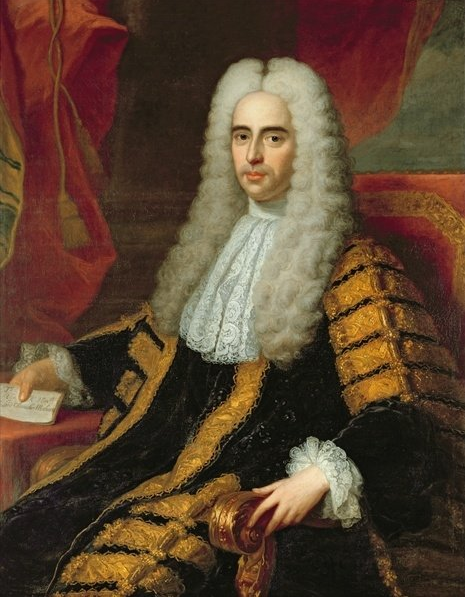




Portrait of John Methuen (1650-1706), by Adrien Carpentiers.
The Methuen Treaty was a military and commercial treaty between England and Portugal that was signed in 1703 as part of the War of the Spanish Succession.
The treaty stipulated that no tax higher than the tax charged for an equal amount of French wines could be charged for Portuguese wines (but see below) exported to England, and that no English textiles exported to Portugal would be charged any taxes, regardless of the geopolitical situation in each of the two nations (to ensure England would still accept Portuguese wine in periods when not at war with France).
Results of the deal were mixed. On the negative side, the country would not develop its industrial infrastructures (and therefore could be said to have lost the industrial race) and other types of agricultural products, but that is debatable, since this period saw the appearance of other industries in Portugal, such as the manufacturing of porcelain. Some of the factories that appeared in this period still exist.
On the positive side, Portugal retained a strong political position on a stage that revealed itself to be fundamental in preserving the territorial integrity of its most important colony, Brazil, as argued by the Brazilian economist Celso Furtado, in his work "Brazilian Economic Foundation".
